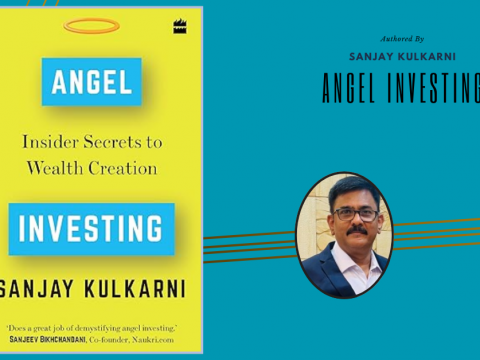- Have any questions?
- [email protected]
“Titan” by Ron Chernow: The Life and Legacy of John D. Rockefeller

“The Ministry for the Future” by Kim Stanley Robinson: A Visionary Approach to Climate Change
June 25, 2025
The Disruptor Series: IORA – Scaling Nature-Based Carbon Finance in India
July 4, 2025Ron Chernow’s “Titan: The Life of John D. Rockefeller, Sr.” is a comprehensive biography that explores the complex and often controversial life of one of America’s most influential figures. Published in 1998, the book delves into Rockefeller’s rise from humble beginnings to becoming the world’s richest man and a pivotal figure in the establishment of the modern American economy. Through meticulous research and engaging storytelling, Chernow paints a detailed portrait of Rockefeller, highlighting both his business acumen and his philanthropic endeavors.
Early Life and Background
John Davison Rockefeller was born on July 8, 1839, in Richford, New York, to a modest family. His father, William Avery Rockefeller, was a traveling salesman with a dubious reputation, while his mother, Eliza Davison Rockefeller, was a devout Baptist who instilled in him a strong work ethic and frugality. Despite the family’s financial struggles, young Rockefeller demonstrated an early aptitude for business, selling candy, raising turkeys, and eventually working as a bookkeeper.
Rise to Power in the Oil Industry
Rockefeller’s entry into the oil industry began in the early 1860s when he and a partner, Maurice B. Clark, opened a commission business in Cleveland, Ohio. Recognizing the potential of the burgeoning oil industry, Rockefeller and Clark invested in a refinery in 1863. However, it was Rockefeller’s strategic vision and shrewd business practices that set him apart. In 1865, he bought out Clark’s share and formed what would become the Standard Oil Company.
Chernow details how Rockefeller revolutionized the oil industry through vertical integration, consolidating various aspects of production, transportation, refining, and marketing under one organization. This approach allowed him to minimize costs, eliminate inefficiencies, and outmaneuver competitors. By the 1880s, Standard Oil controlled about 90% of the United States’ oil refining capacity, making Rockefeller one of the wealthiest and most powerful men in the world.
Business Strategies and Controversies
Rockefeller’s business methods were often controversial. He employed aggressive tactics, such as predatory pricing, secret transportation rebates, and buying out competitors, which led to widespread criticism and numerous legal battles. Chernow examines these practices in depth, providing a balanced view of Rockefeller as both a visionary entrepreneur and a ruthless monopolist.
One of the most significant controversies surrounding Rockefeller was the landmark antitrust case against Standard Oil. In 1911, the U.S. Supreme Court ruled that Standard Oil violated the Sherman Antitrust Act and ordered its breakup into 34 independent companies. Despite the breakup, Rockefeller’s wealth continued to grow, as he retained substantial stock in the successor companies, including ExxonMobil and Chevron.
Philanthropy and Legacy
While Rockefeller’s business practices garnered criticism, his philanthropic efforts earned widespread admiration. Chernow highlights Rockefeller’s belief in the “Gospel of Wealth,” a philosophy that the wealthy have a moral obligation to distribute their wealth for the greater good. Over his lifetime, Rockefeller donated more than $500 million to various causes, a staggering sum at the time.
He established numerous institutions, including the University of Chicago, Rockefeller University, and the Rockefeller Foundation, which funded public health initiatives, medical research, and education programs. His contributions to the eradication of diseases like hookworm and yellow fever had a profound impact on global health.
Personal Life and Character
Chernow’s biography also delves into Rockefeller’s personal life, portraying him as a deeply religious and disciplined individual. He maintained a regimented daily routine, abstained from alcohol and tobacco, and was known for his austere lifestyle despite his immense wealth. Rockefeller was a family man, devoted to his wife, Laura Spelman Rockefeller, and their five children.
Chernow explores the duality of Rockefeller’s character—his ruthless pursuit of business success juxtaposed with his genuine commitment to philanthropy and moral principles. This complexity makes Rockefeller a compelling figure, whose life offers valuable lessons on leadership, ethics, and the responsibilities of wealth.
Impact on Modern Business Practices
Rockefeller’s influence extends far beyond his lifetime, shaping modern business practices and corporate philanthropy. His emphasis on efficiency, innovation, and strategic planning set new standards for business operations. Additionally, his philanthropic model, which involved systematic, large-scale giving aimed at solving societal problems, paved the way for future philanthropists like Andrew Carnegie, Bill Gates, and Warren Buffett.
Ron Chernow’s “Titan” provides an exhaustive and nuanced exploration of John D. Rockefeller’s life. It captures the essence of a man who was a product of his time but whose influence continues to resonate today. Rockefeller’s legacy is one of profound contradictions—he was both a feared monopolist and a revered philanthropist, a titan of industry and a benefactor of humanity. Through Chernow’s masterful biography, readers gain a deeper understanding of the complexities and achievements of one of history’s most fascinating figures.





